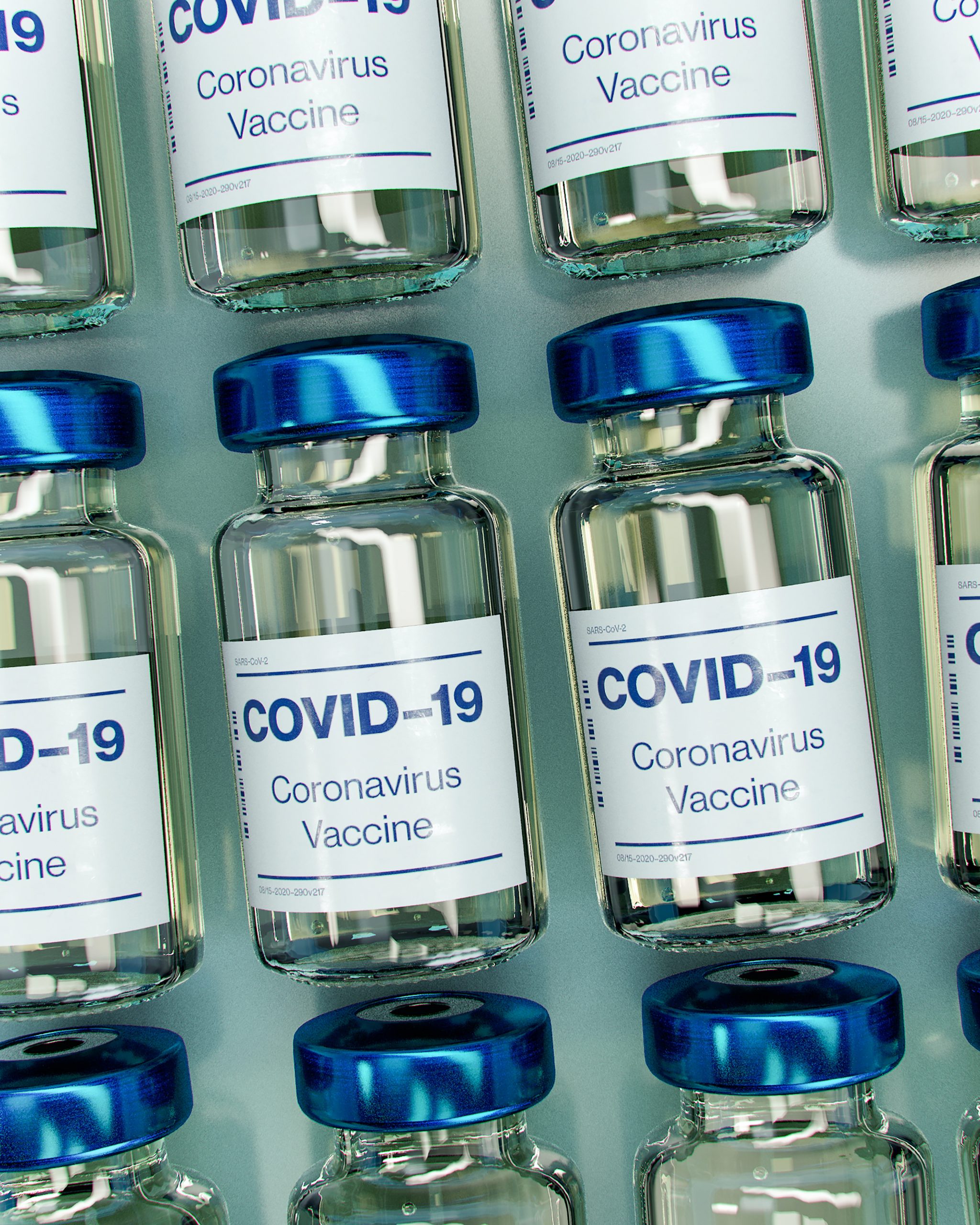Millions of Americans are anxiously awaiting their turn to receive a COVID-19 vaccine, in order to diminish their personal sense of vulnerability to infection and to hasten a return to normal life. The novel Pfizer-BioNTech (Pfizer) and Moderna two dose mRNA vaccines were developed with unprecedented speed. Encouragingly, data demonstrate that they are 94-95% effective at preventing symptomatic infections with the original strain of the SARS-CoV-2 virus (COVID-19). Secondary to the absence of a federal plan, and disbursement strategies relegated to the states, the initial distribution and administration of these vaccines has been frustratingly slow. Even where process improvements have been optimized, daily vaccination totals remain limited by supply. Even at the current rate of 1.3 million doses per day, it will take another 6 months or more to vaccinate all those eligible.
Last week, Johnson and Johnson (J&J), developers of a more traditionally designed and single dose COVID-19 vaccine, released interim results of its phase 3 trials. The J&J vaccine was shown to have 66% efficacy (72% in the US) at preventing moderate to severe disease, and 85% efficacy at preventing severe disease. There were no hospitalizations or deaths which occurred within 28 days following vaccination.
The prospect of an additional vaccine is advantageous in many ways. With more companies manufacturing vaccines, there is simply more vaccine on the market, so more people can be vaccinated, fewer will become ill, and herd immunity can be reached more quickly. Once the risk of becoming infected has significantly diminished, it will be safer to engage in all of the activities of daily living that involve being in close physical proximity to other people. However, since it is less effective at preventing evident illness than the Pfizer and Moderna vaccines, the availability of the J&J vaccine presents additional ethical dilemmas as well.
Currently, if you meet criteria and are sufficiently persistent/lucky enough to secure a COVID-19 vaccination appointment, you receive whichever vaccine that the vaccinator has available at the time, Pfizer or Moderna. There is no allowance for personal preference. From both an individual and a societal perspective, this is of no consequence, because data demonstrate that these vaccines are equally safe and efficacious. The J&J vaccine, on the other hand, appears to be measurably less effective. Therefore, the question arises as to how it shall be integrated into the supply chain.
Given the sheer number of people it is necessary to vaccinate to control the pandemic, COVID-19 vaccine demand will outstrip supply in the US and worldwide for the foreseeable future. Assuming that the J&J vaccine receives emergency use approval from the FDA, and becomes available in the US, will it be preferable to receive a somewhat less effective vaccine vs waiting longer for the option of a more effective vaccine? The latter option, waiting, confers an ongoing (and elevated compared to receipt of any COVID-19 vaccine) risk of contracting COVID-19 disease. Will prospective recipients have a choice in the matter? If the J&J vaccine is offered interchangeably with the Pfizer and Moderna vaccines, within the context of the present vaccine scheduling system, what are the consequences if people arrive for their appointments, but then reject the type of vaccine on offer? The time slot is wasted, and the person remains unvaccinated. If someone does receive the J&J vaccine, will they, or should they, have the option later to obtain the Moderna or Pfizer version? How should it be decided, or by whom, as to who receives the less effective option? Young people get J&J, those over 60 or who have underlying medical conditions get Pfizer/Moderna? Those currently eligible for vaccination receive Pfizer/Moderna, while those whose tier has not yet been called have the option for early vaccination with J&J?
At present, there is not enough data to predict the risk that someone who acquires either symptomatic or asymptomatic COVID-19 infection following administration of the Moderna or Pfizer vaccines will be able to transmit the infection to others. It is generally thought that sick individuals who are coughing, sneezing, or blowing their noses are more likely to propel infected particles into the air, which can land on, or be inhaled by, other humans, or which may contaminate inanimate objects with which other humans may come into physical contact, than those who are not actively projecting germs into their surroundings. If the risk of symptomatic infection is greater following use of the J&J vaccine, as compared to the Pfizer or Moderna vaccines, does that mean that those who receive the J&J vaccine are more likely to transmit COVID-19 than those who received Pfizer/Moderna vaccines?
Further complicating this subject is the propensity for COVID-19, like most viruses, to mutate. There are already indications that the British, S. African, and Brazilian variants are more contagious (likely to spread), more virulent (likely to cause illness or death), or both, and that the vaccines and therapeutic agents available to prevent or treat COVID-19 infections may be less effective against them. What effect will these evolving threats have on the use of the J&J or the other vaccines going forward?
Clearly, the choice between the J&J vaccine and no vaccine overwhelmingly favors the vaccine, particularly since no significant safety concerns were identified. For situations where compliance with the required 2nd dose of the Pfizer or Moderna vaccines is a concern, availability of a vaccine where only one dose is needed to obtain optimal results has significant advantages. Also, unlike the Pfizer vaccine, the J&J vaccine does not require subzero temperatures for storage and transportation, so more facilities, such as pharmacies, groceries, or mobile distribution centers, will be candidates to maintain and administer it, significantly expanding vaccination capability. If authorization of the J&J vaccine delivers more vaccines onto the market and into the arms of the public, thereby reducing the number of infections in the community, it has an unquestionable public health benefit to society. However, at the individual level, the decision of who can and should get what, and when, can be tricky. There must be informed and deliberate consideration and debate.

